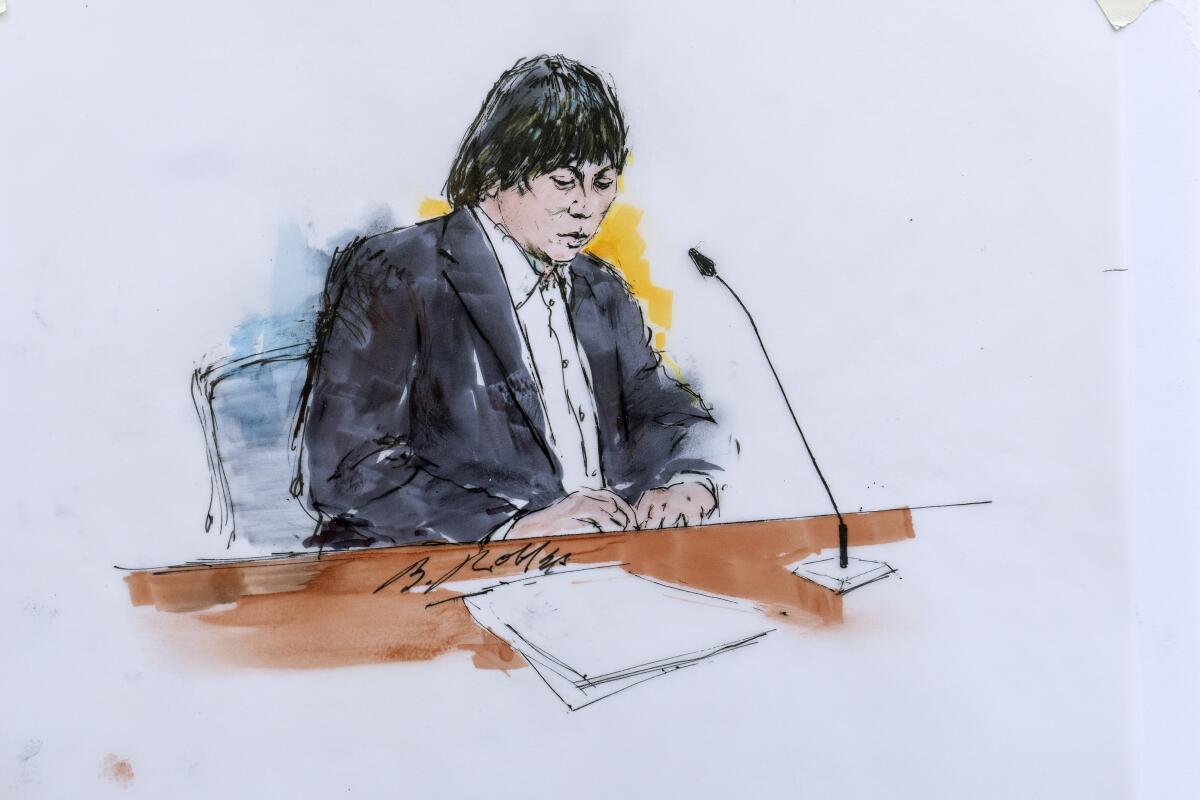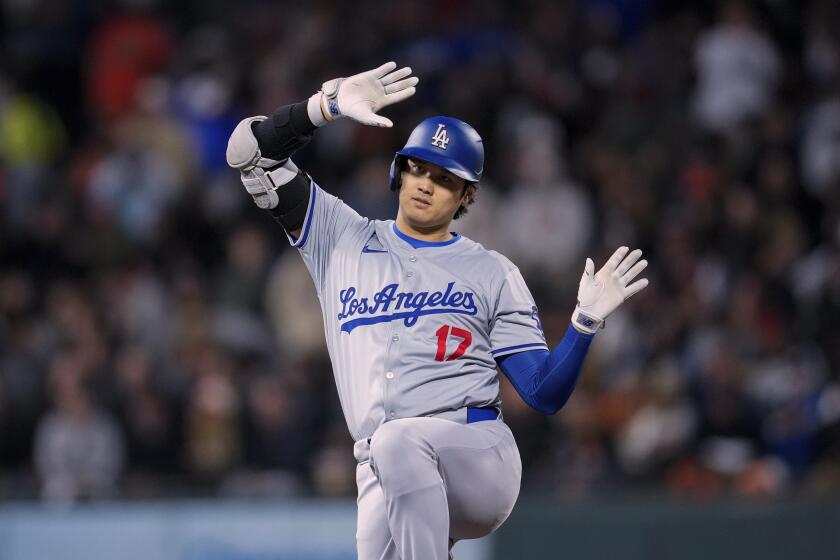Ippei Mizuhara, Shohei Ohtani’s former interpreter, pleads not guilty as a formality

- Share via
LOS ANGELES — The former interpreter for Dodgers star Shohei Ohtani pleaded not guilty Tuesday to bank and tax fraud, a formality before following through on a plea deal he’s negotiated with federal prosecutors to admit guilt in a wide-ranging sports betting case.
Prosecutors say Ippei Mizuhara stole nearly $17 million from Ohtani to pay off sports gambling debts during a years-long scheme, at times impersonating Ohtani to bankers, and exploited his personal and professional relationship with the two-way star. Mizuhara signed a plea agreement that detailed the allegations on May 5, and prosecutors announced it several days later.
During Mizuhara’s arraignment Tuesday in federal court in Los Angeles, U.S. Magistrate Judge Jean P. Rosenbluth asked Mizuhara to enter a plea to one count of bank fraud and one count of subscribing to a false tax return. The expected not-guilty plea was a procedural step as the case moves forward, even though he has already agreed to the plea deal.
Defense attorney Michael G. Freedman said Mizuhara planned to plead guilty in the future. In the hallway before the hearing, Freedman said they would not comment Tuesday.
Shohei Ohtani hits a mammoth home run and the Dodgers have little trouble with the Giants in blowout victory.
Members of the media were not allowed inside the main courtroom and instead were seated in an audio-only overflow room. The Associated Press and other outlets filed a complaint with the court clerk and chief district judge.
Mizuhara only spoke to answer the judge’s questions, with responses like “Yes, ma’am” when asked whether he understood the proceedings.
There was no evidence Ohtani was involved in or aware of Mizuhara’s gambling, and the player is cooperating with investigators, authorities said.
Mizuhara’s plea agreement says he will be required to pay Ohtani restitution that could total nearly $17 million, as well as more than $1 million to the IRS. Those amounts could change prior to sentencing. The bank fraud charge carries a maximum sentence of 30 years in federal prison, and the false tax return charge carries a sentence of up to three years in federal prison.
Mizuhara’s winning bets totaled over $142 million, which he deposited in his own bank account and not Ohtani’s. But his losing bets were around $183 million, a net loss of nearly $41 million. He did not wager on baseball, investigators said.
Dodgers star Shohei Ohtani thought he might be able to play Sunday, but manager Dave Roberts made clear the division of labor that is needed.
He is free on an unsecured $25,000 bond, known as a signature bond, meaning he did not have to put up any cash or collateral to be freed. If he violates the bond conditions — which include a requirement to undergo gambling addiction treatment — he will be on the hook for $25,000.
The judge set a status conference for June 14.
The Los Angeles Times and ESPN first reported Mizuhara’s prosecution in late March, prompting the Dodgers to fire the interpreter and Major League Baseall to open its own investigation.
MLB rules prohibit players and team employees from wagering on baseball, even legally. MLB also bans betting on other sports with illegal or offshore bookmakers.
Ohtani has sought to focus on the field as the case winds through the courts. Hours after his ex-interpreter first appeared in court in April, he hit his 175th major league home run — tying Hideki Matsui for the most by a Japan-born player — in a game against the San Diego Padres.
More to Read
Are you a true-blue fan?
Get our Dodgers Dugout newsletter for insights, news and much more.
You may occasionally receive promotional content from the Los Angeles Times.








